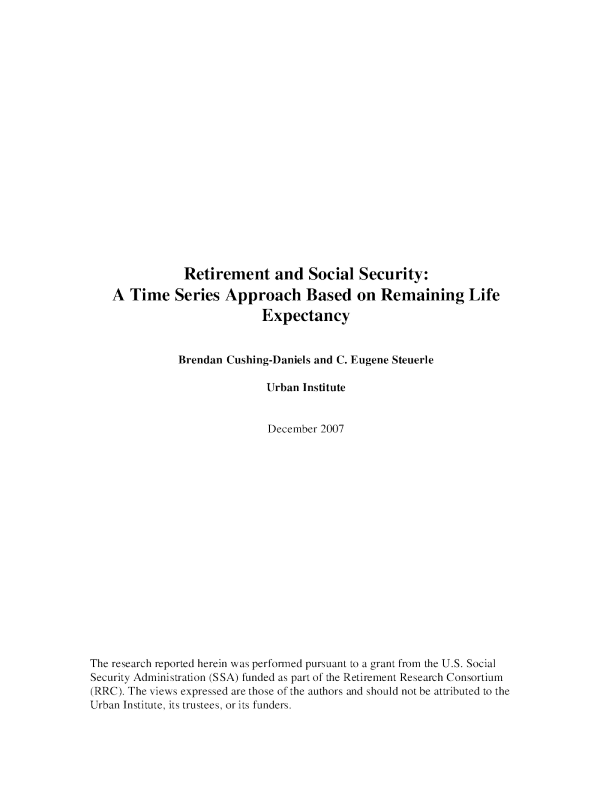Dialogue Series on New Economic and Social Frontiers: Policy Pathways for the New Economy

November 2019Policy Pathways for the New Economy Shaping Economic Policy in the Fourth Industrial RevolutionPlatform for Shaping the Future of the New Economy and Society This white paper is the outcome of a set of international, multi-stakeholder dialogues organized by the World Economic Forum’s Platform for Shaping the Future of the New Economy and Society under the umbrella of the Second Dialogue Series on New Economic Frontiers. The First Dialogue Series was convened between September 2018 and January 2019 (https://www.weforum.org/whitepapers/dialogue-series-on-new-economic-and-social-frontiers-shaping-the-new-economy-in-the-fourth-industrial-revolution). This second series engages the Platform’s Global Future Councils on the New Economic Agenda and the New Social Contract, representing views from business, government, civil society and the research community. It identifies some of the most urgent challenges at the intersection of globalization, technology, economics and society, and explores a range of potential interventions to address them. As opposed to the First Dialogue Series, which considered a broad range of public- and private-sector led solutions, this Series focuses entirely on interventions in the public policy space, in the areas of labour, innovation and tax policy.As a key output of the learning created, this white paper draws upon discussion contributions by leaders and experts who engaged in the Dialogue through a series of virtual calls between May and August 2019. It also includes the latest thinking from international organizations, academic researchers, think tanks, businesses and other stakeholders. It aims to develop consensus towards a common narrative on the new economic and social context and objectively identify emerging response options for policy makers. The white paper is intended to be a resource for governments, business and other stakeholders interested in furthering economic and social progress in the Fourth Industrial Revolution.World Economic Forum 91-93 route de la CapiteCH-1223 Cologny/GenevaSwitzerlandTel.: +41 (0)22 869 1212Fax: +41 (0)22 786 2744Email: contact@weforum.orgwww.weforum.orgWorld Economic Forum®© 2019 – All rights reserved. No part of this publication may be reproduced or transmitted in any form or by any means, including photocopying and recording, or by any information storage and retrieval system. REF 03112019 iiiDialogue Series on New Economic FrontiersIntroductionContents01 Introduction05 The Future of Innovation Policy13 The Future of Labour Policy21 The Future of Fiscal Policy29 AcknowledgementsThis white paper has been published by the World Economic Forum as a contribution to a project, insight area or interaction. The findings, interpretations and conclusions expressed herein are a result of a collaborative process facilitated by the World Economic Forum, but whose results do not necessarily represent the views of the World Economic Forum, nor the entirety of its Members, Partners or other stakeholders. 01Dialogue Series on New Economic FrontiersSystems Change to Build Inclusive Economies in the Fourth Industrial RevolutionGlobalization and technological progress have profoundly transformed economies and radically redistributed opportunities to participate and thrive. As a result, there is a need for new deliberate action across stakeholders—business, government and workers—to create greater shared prosperity. Economic inequality and social polarization are growing in many countries. Their sources are many and the guises varied: technological change has been hollowing out the middle class1; productivity gains have not translated into higher wages for the vast majority of workers and the labour share of total income continues dropping2; career paths have become more volatile and working conditions more precarious for many workers3; and algorithm bias has the potential to become a source of perpetuating discrimination.4 At the same time, competition in many industries has been weakening and wealth concentration growing.5 All of this has come on top of the effects of globalization, which left many low-skilled workers in a precarious position by the time the Fourth Industrial Revolution began to unfold.While the challenge is tremendous, there is a unique window of opportunity today to mobilize human collaboration and technology to move toward more equitable outcomes. Achieving the kind of multi-systems change that will be needed to fully realize the new potential and fairly distribute the gains from openness and technological progress will require breaking with established paradigms that have proven insufficient. It will require leaders committed to institutional change and policy reform as well as shifts in societal norms, business practices and attitudes by individuals. It will also need to involve fresh thinking on the best way to redraw the boundaries on roles and responsibilities in managing the transition to the new ec




